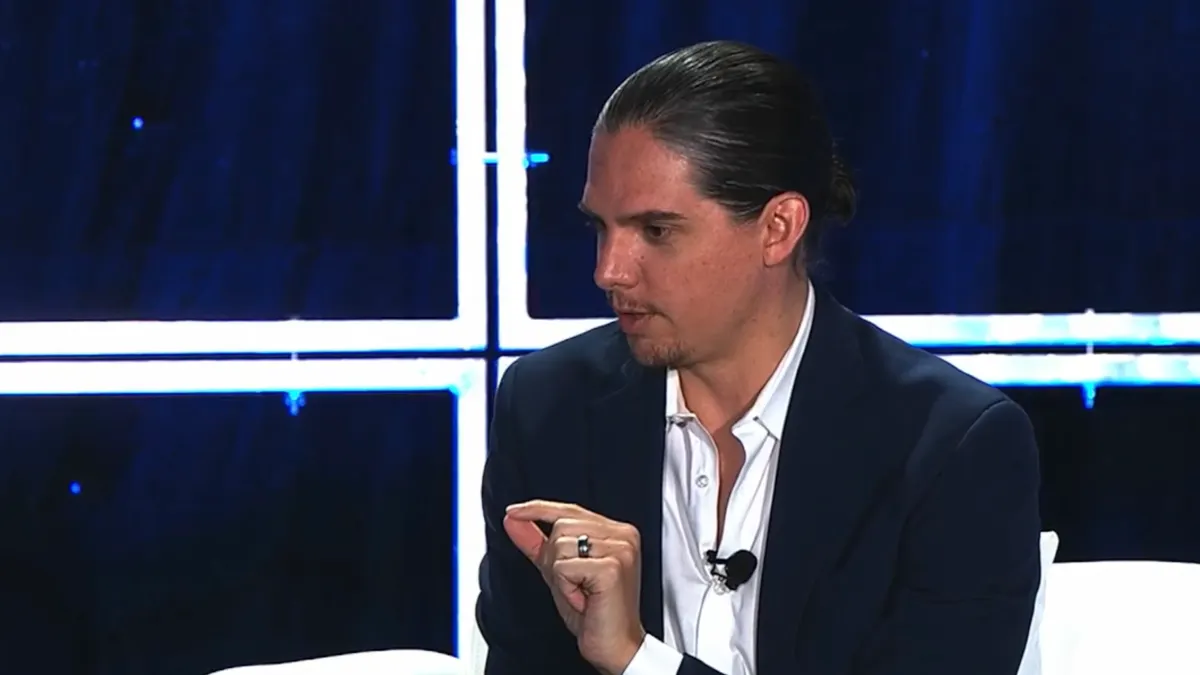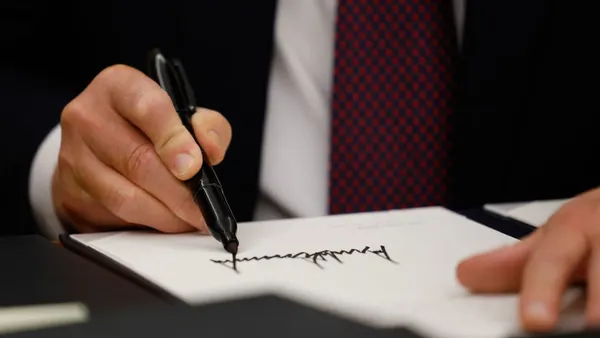After much anticipation, SHRM President and CEO Johnny C. Taylor Jr. moderated a panel between conservative activist Robby Starbuck and political analyst Van Jones Tuesday, attended in person by Blueprint conference-goers in Louisville, Kentucky, and virtually via a LinkedIn livestream.
Contrary to the expectations of some HR professionals, the panel’s substance didn’t overtly signify a battle of “left vs. right.” Rather than politics, the dichotomy explored on-stage was more aligned with “arguments for DEI vs. arguments against DEI.”
Below are five tidbits from the highly anticipated panel at the first SHRM Blueprint.
1. Starbuck: Companies should stop policing speech outside of work.
In discussing off-the-clock behavior, Taylor offered the example of the “Central Park Karen” — although he was explicit in not using this colloquialism — and said he was mystified by how people seemed, from his digital experience, to unanimously agree that the woman at the center of the incident should be fired. Taylor’s comments drew ire in the livestream chat.
With humor, Taylor asked audience members to consider that sometimes their off-the-clock conduct is less than favorable — say, pulling into the parking lot at Lowe’s, getting cut off and expressing anger colorfully. He challenged the idea that people should be punished for these compromising moments.
Starbuck agreed, saying companies should stop policing employee speech outside of work.
2. Jones: ‘Expect the blind spot. Respect the sore spot.’
Beyond civility, Jones talked about how difficult conversations will go wrong, even despite the best intentions. “Expect the blind spot; respect the sore spots,” he advised the audience.
He also talked about “space and grace.” Sometimes, an individual will need “space” if they’ve been hurt by a co-worker; sometimes, an individual might need “grace” if they are the one who has messed up.
3. Jones: After George Floyd, corporate America went too far.
Taylor mentioned the notable shift in the DEI conversation, touching on the phenomenon of “reverse discrimination” cases on the rise, where people whose identities belong to dominant social groups, such as White workers or straight employees, bring lawsuits alleging discrimination.
“Building a world-class team is hard,” Jones said. “Finding great talent, especially from places that maybe are not the usual sources, is hard.” Jones, who said he is working on an AI company, talked about how innovation from a tech perspective is hard.
“Especially after George Floyd, there was a moment where people went too far in one direction,” he said. “And that’s OK, that happens. But the correction isn’t to just go back to things that weren’t working in the past,” he said.
4. Starbuck: There is no ‘good’ DEI.
Whereas Jones said some tweaks to DEI practices could better serve employees and be more compliant — he highlighted mentorship programs for all kinds of employees — Starbuck condemned DEI wholesale.
As he did before, Starbuck called DEI “poison.” He said that “most” or “all” DEI programs are bad. DEI is “antithetical” to Title VII of the Civil Rights Act, he said.
Taylor pushed Starbuck on his statement: “You started with ‘most DEI’ and then you said ‘all DEI.’ Are you suggesting that there is no good DEI?”
“No, because it has equity inherently baked in. And equity is a Marxist concept. I believe in equality. I believe that we need to treat people equally, and I think that we need to hire people on the basis of merit,” Starbuck responded. Jones disagreed with Starbuck, citing his previous study of Marxism.
5. Starbuck: I don’t care if people see me as a bully.
Jones told Starbuck that he may be giving himself too much credit for his stances: “I don’t think people are being won over by your argument. I think they are being run over by your bully tactics and [are] afraid of the government. So that’s something I think you have to be careful about.”
“You may be right about that,” Starbuck said in response. “The CEOs may just be kissing up to me when they say that I’ve won them over with my arguments,” he said. “But to be honest with you, I don’t really care whether it’s [a] by-product of me running them over with bully tactics, or whether it’s because they loved my argument privately … Because we get to the same end point.”
Still, by the end of the two-and-a-half-hour session and their brief tiff, Jones and Starbuck were amicable, saying they’d keep in touch and sharing a fist bump.















